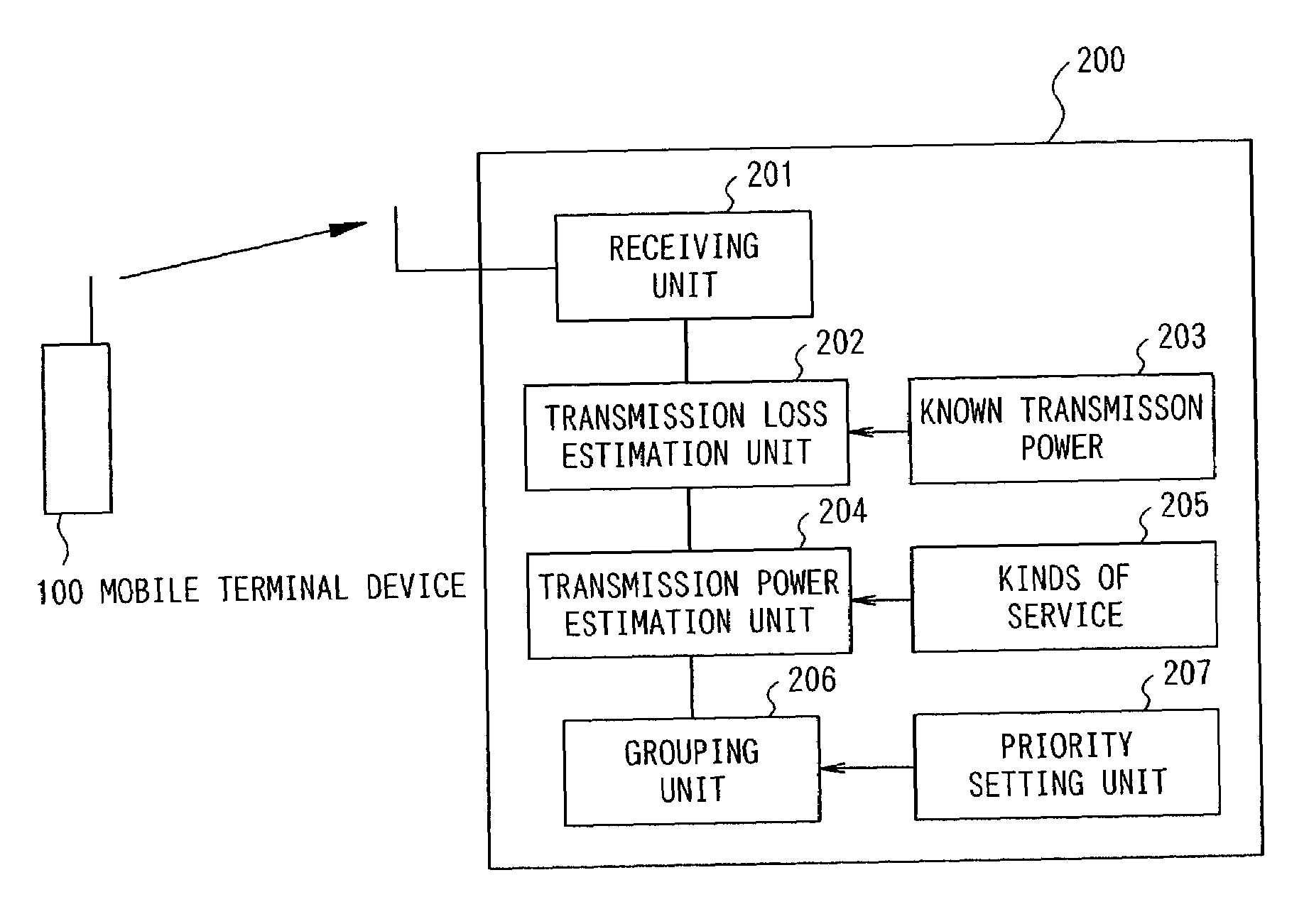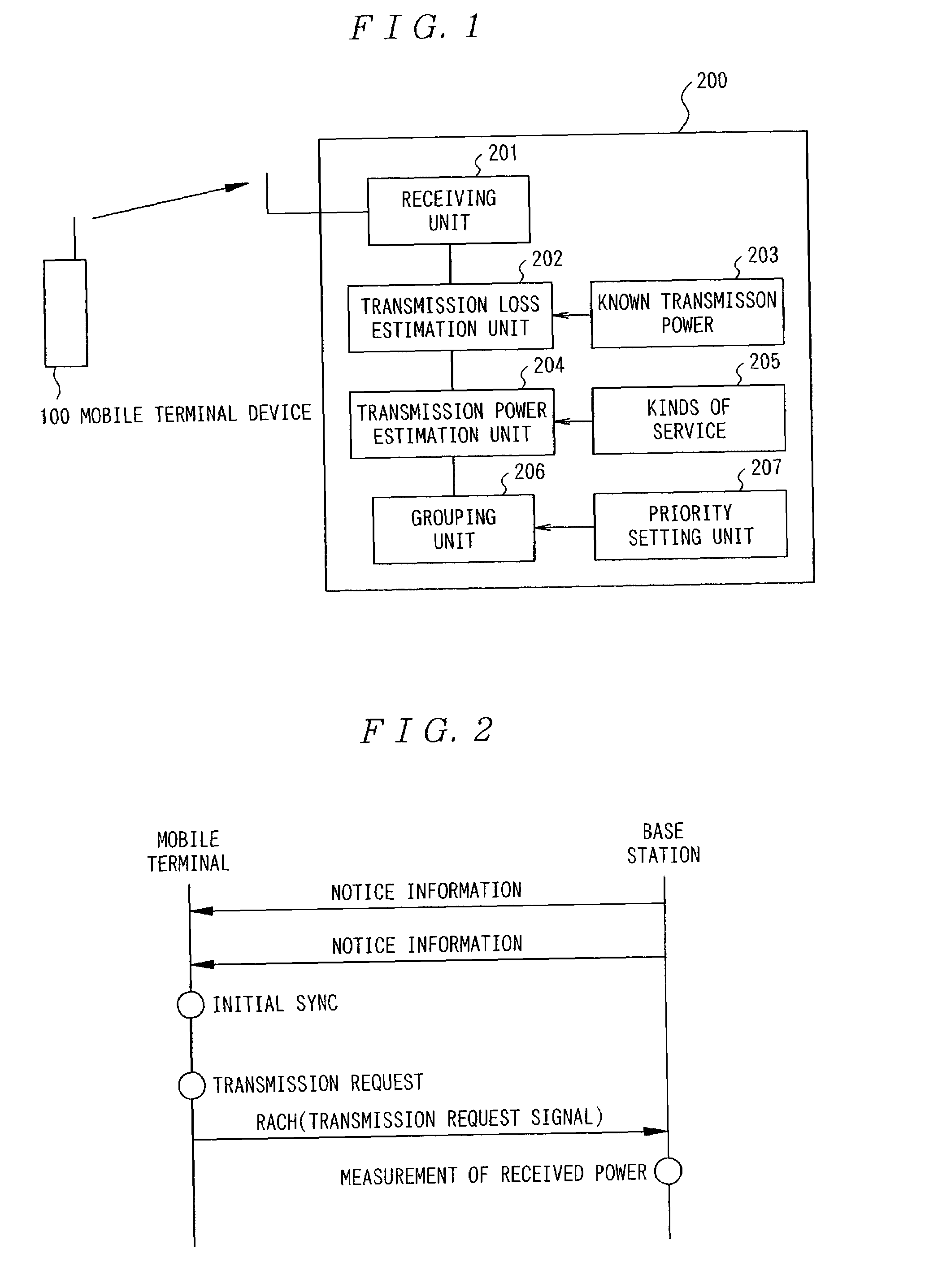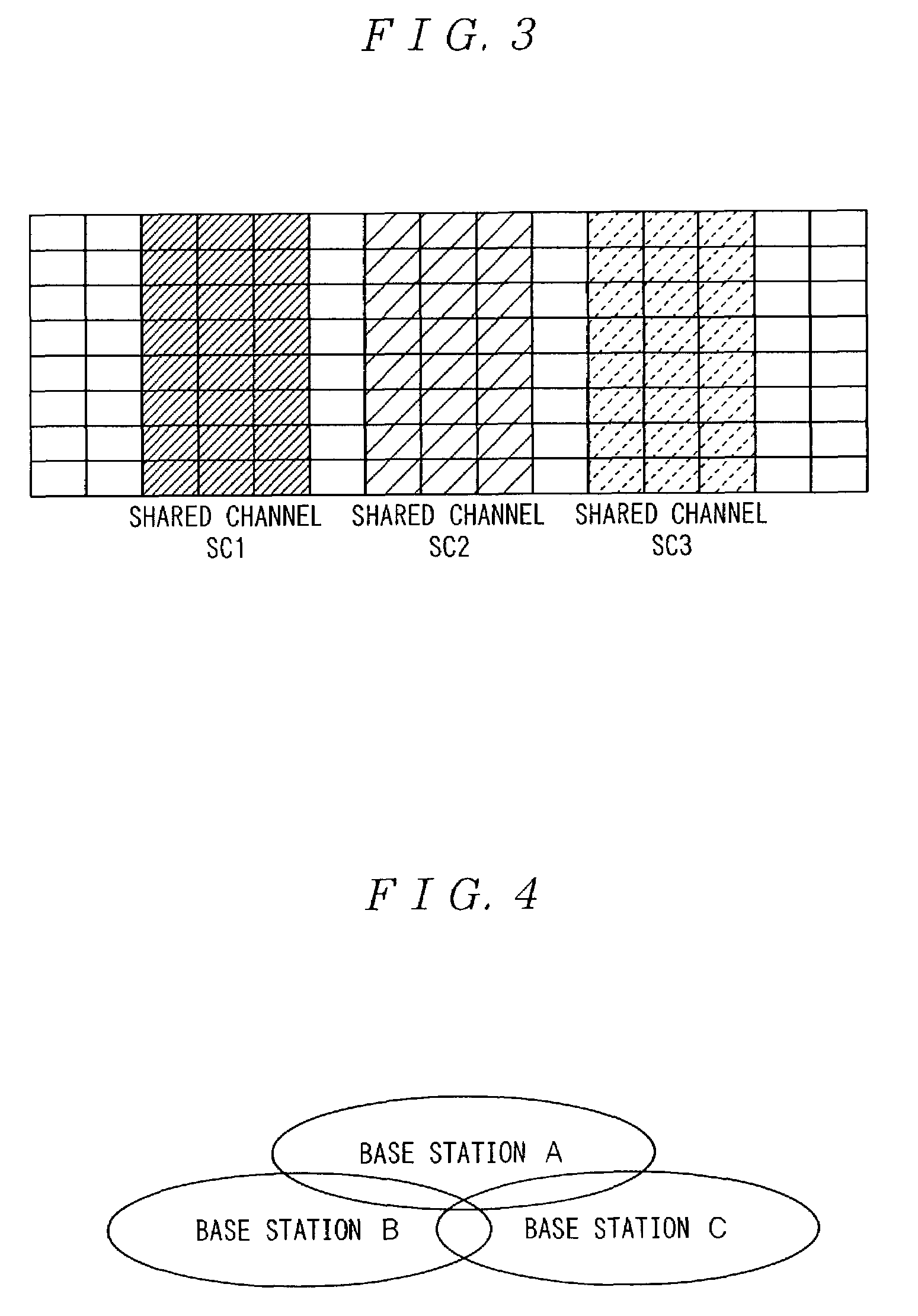Mobile communication system, base station apparatus, and method of controlling mobile communication system
a mobile communication system and base station technology, applied in multiplex communication, wireless communication, power management, etc., can solve the problems of communication quality reduction, transmission power control in cdma/tdma/tdd systems without transmission power control, and the need to increase transmission power, so as to reduce interference power received in one cell from adjacent cells and limit transmission power
- Summary
- Abstract
- Description
- Claims
- Application Information
AI Technical Summary
Benefits of technology
Problems solved by technology
Method used
Image
Examples
first embodiment
(First Embodiment)
[0044]A first embodiment of the present invention will be described. A wireless access method in this embodiment is assumed to be a combination of three methods: a CDMA method, a TDMA method and a TDD method. The embodiment will be described with respect to a case where transmission power control of transmission over a downstream channel is performed.
[0045]A frame configuration, e.g., the one shown in FIG. 9 may be used in this embodiment. As mentioned above, FIG. 9 shows an example of a CDMA / TDMA / TDD method in which one frame is constituted by fifteen time slots, in which eight codes at the maximum can be multiplexed. Since the wireless access method in this embodiment is a combination of a CDMA method, a TDMA method, and a TDD method, wireless resource assignment with respect to a traffic is as described below.
[0046](1) According to the TDD method, the fifteen time slots are allotted between upstream channels and downstream channels.
[0047](2) According to the TDM...
second embodiment
(Second Embodiment)
[0063]Next, a second embodiment of the present invention will be described. A wireless access method in this embodiment is assumed to be a combination of a CDMA method, a TDMA method and a TDD method, as is that in the first embodiment. In this embodiment, transmission power control of transmission over a downstream channel is not performed but transmission power is set to different levels with respect to time slots or shared channels. FIG. 7 shows an example of setting of transmission power to different levels with respect to time slots or shared channels.
[0064]FIG. 8 shows a relationship between the transmission power and priorities in a case where a plurality of base stations exist in each of which a transmission power setting similar to that shown in FIG. 7 is made. As shown in FIG. 8, in the base station A, a highest level of transmission power is set for transmission over a shared channel SC1 in shared channels SC1 to SC3, while a lowest level of transmissio...
PUM
 Login to View More
Login to View More Abstract
Description
Claims
Application Information
 Login to View More
Login to View More - R&D
- Intellectual Property
- Life Sciences
- Materials
- Tech Scout
- Unparalleled Data Quality
- Higher Quality Content
- 60% Fewer Hallucinations
Browse by: Latest US Patents, China's latest patents, Technical Efficacy Thesaurus, Application Domain, Technology Topic, Popular Technical Reports.
© 2025 PatSnap. All rights reserved.Legal|Privacy policy|Modern Slavery Act Transparency Statement|Sitemap|About US| Contact US: help@patsnap.com



